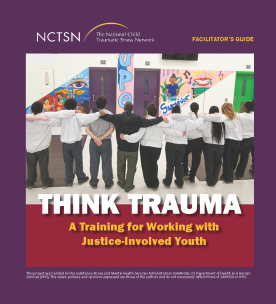
Think Trauma: A Training for Working with Justice Involved Youth, 2nd Edition
Provides an overview for juvenile justice staff on how to work towards creating a trauma-informed juvenile justice residential setting.
Children who come to the attention of the juvenile justice system are a challenging and underserved population. The National Child Traumatic Stress Network has developed resources to help juvenile justice professionals understand and provide trauma-focused services to these youth. These resources include tools and materials for building skills and increasing knowledge about childhood trauma to help judges, attorneys, law enforcement, probation officers, frontline residential staff, mental health personnel, and caregivers understand and respond to the needs of traumatized children. In addition to the NCTSN resources highlighted below, Justice System Professionals can learn more about creating trauma-informed Justice Systems in the Trauma-Informed Care section of this website.

Provides an overview for juvenile justice staff on how to work towards creating a trauma-informed juvenile justice residential setting.

Describes how young children, school-age children, and adolescents react to traumatic events and offers suggestions on how parents and caregivers can help and support them.

Defines child traumatic stress. This fact sheet gives an overview of trauma, describes traumatic stress symptoms, and ways children may be impacted.

Offers information regarding child sex trafficking to juvenille justice professionals.
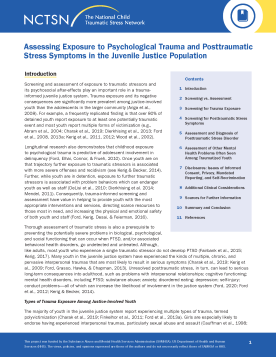
Explores the importance, clinical considerations, and approaches to assess for psychological trauma and posttraumatic stress in youth in the juvenile justice population. This fact sheet addresses challenges that are unique to assessment within the juvenile justice environment.
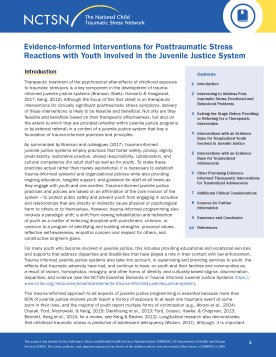
Describes evidence-informed interventions for youth involved in the juvenile justice system.

Gives details about the growing number of girls in the juvenile justice system.
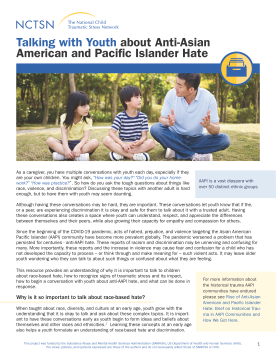
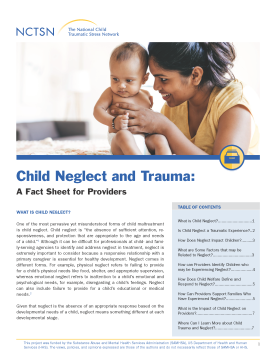
Offers child-serving providers information about child neglect and trauma.
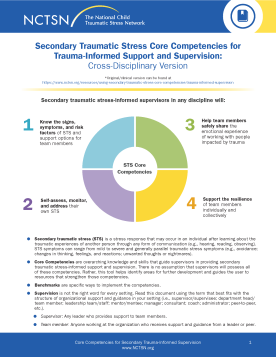
Identifies the core competencies that STS-informed supervisors in any discipline should have. This fact sheet defines terms, outlines benchmarks for each competency, and offers supervisors guidance on ways...
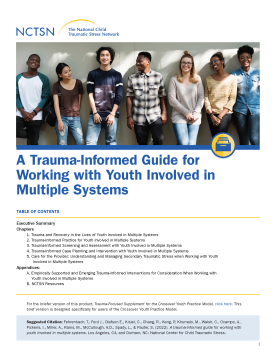
Offers guidance to help those working with youth involved in multiple systems (YIMS) and their families to use a traumatic stress perspective and provide trauma-informed care.
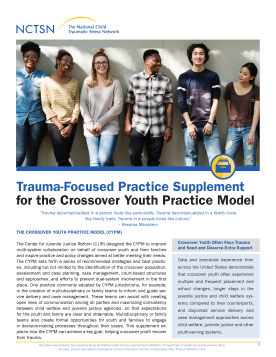
Is designed for those working with youth involved in multiple systems using the Crossover Youth Practice Model. This supplement is a brief version of A Trauma-Informed Guide for Working with Youth Involved in Multiple Systems developed specifically for staff...